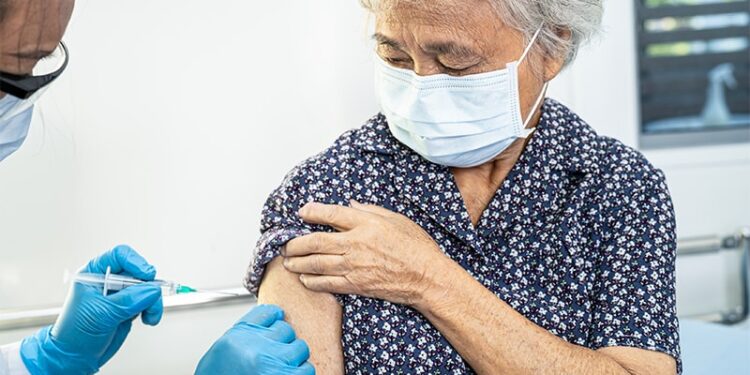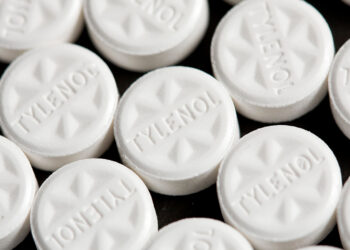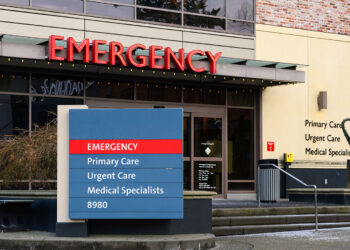The Medicines and Healthcare products Regulatory Agency (MHRA) has issued a Drug Safety Update concerning Guillain-Barré syndrome (GBS) following the administration of respiratory syncytial virus (RSV) vaccines.
Healthcare professionals are advised to inform recipients of Abrysvo (Pfizer) and Arexvy (GSK) about potential symptoms of GBS. Should these occur, recipients should seek immediate medical care, as early intervention can reduce severity and improve outcomes.
GBS is an acute demyelinating disease that affects the peripheral nervous system. It has previously been reported in response to several vaccines, including those for influenza, swine flu, SARS-CoV-2, meningococcal disease, poliovirus, and rabies. Symptoms usually start in the limbs and include tingling, numbness, or pins and needles in the feet and hands, followed by muscle weakness and difficulty moving joints.
Severe Cases May Include Paralysis
In more serious cases, patients may experience shooting nerve pain, often in the legs or back; breathing difficulties; drooping facial muscles; problems with swallowing or speech; and double vision. Some may develop paralysis in the legs, arms, or face.
Treatment typically requires hospitalisation for several weeks or months. Therapies include immunotherapy and symptomatic management. GBS can be fatal in rare instances.
Study Suggests Increased Risk Post-Vaccination
The MHRA alert follows a US study evaluating GBS risk in adults aged over 65 after receiving RSV vaccines. The study, led by the US Food and Drug Administration and data analysis company Acumen in California, was conducted as a self-controlled case series analysis between 3 May 2023 — when the vaccines were first approved in the US — and 28 January 2024.
The study involved approximately 3.23 million Medicare recipients who received either Abrysvo or Arexvy. The researchers compared the incidence of GBS during risk intervals of 1-42 days after vaccination — when most reactions occur — to the incidence in later control periods (43-90 days).
Ninety-five GBS cases were reported in the early period. The incidence rate ratio (IRR) ranged from 2.02 to 2.46, translating to 6.5-9 additional cases per 1 million vaccine doses. However, statistical significance was reached only in the Arexvy group.
In the UK, Abrysvo is the RSV vaccine offered through the NHS to adults aged 75-79 and to pregnant women.
As of 2 June 2025, the MHRA had received 21 Yellow Card reports of suspected GBS in older adults following Abrysvo vaccination. This was out of more than 1.9 million doses of Abrysvo administered up to 26 May on the NHS scheme.
There have been no Yellow Card reports of GBS following Arexvy in the UK, probably due to limited use. Arexvy is not used in the NHS but may be accessed privately by adults over 60, or those aged 50-59 at higher risk.
Arexvy is not recommended for use in pregnancy. However, the MHRA said that there was currently no evidence that Abrysvo increased GBS risk in pregnant women. The MHRA reported that, among over a quarter of a million doses of Abrysvo given to pregnant women up to 26 May 2025, there had been no Yellow Card reports of suspected GBS.
Risk Remains Rare, Says MHRA
The MHRA emphasised that the risk for GBS from RSV vaccines remains rare. Early, unpublished data from postmarketing surveillance by the UK Health Security Agency and Public Health Scotland estimated a combined excess of 15-25 GBS cases per million doses of Abrysvo given to those aged 75-79.
The Commission on Human Medicines has reviewed the data and advised that the benefits of RSV vaccination in older adults outweigh the risk of developing GBS.
Healthcare professionals and the public are urged to continue reporting suspected adverse reactions associated with Abrysvo and Arexvy through the Yellow Card scheme.
Dr Sheena Meredith is an established medical writer, editor, and consultant in healthcare communications, with extensive experience writing for medical professionals and the general public. She is qualified in medicine and in law and medical ethics.
Source link : https://www.medscape.com/viewarticle/mhra-advises-rare-guillain-barr%C3%A9-syndrome-risk-after-2025a1000i2h?src=rss
Author :
Publish date : 2025-07-08 12:16:00
Copyright for syndicated content belongs to the linked Source.












